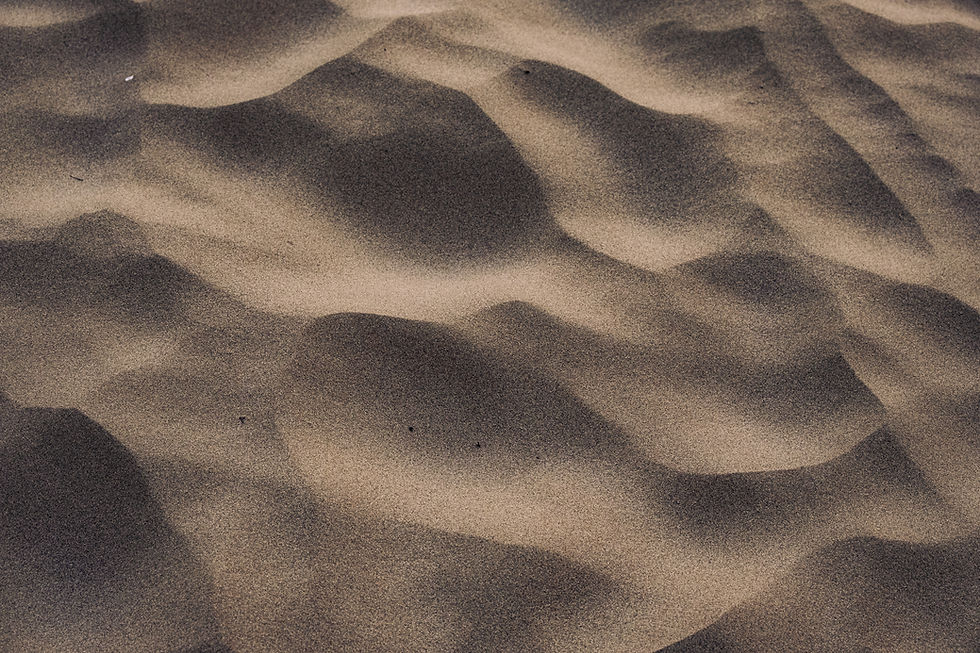Unbowed: The man who’s taken on mining giant Adani
- swinjournalism
- Oct 8, 2020
- 4 min read
Ben Pennings stood alone. He was 12 when he crossed the classroom floor to “vote” for Bob Hawke, who’d promised to save the Franklin River if Labor won.
Pennings’ teacher was staging a mock election, asking the students their stance. The proposed damming of the Franklin River was dominating the news in Queensland during 1982, and the protests were at boiling point.
Pennings and his father, a Protestant minister who religiously tuned to ABC 7.30, were constantly reminded of the repercussions the federal election would have on the fate of the river.
Now Pennings is alone again, this time in court, being sued by the massive mining company Adani Australia for an amount he says he would “never be able to pay back”.
Selling the family home and forfeiting other assets are on the cards if the company is successful in its civil action.

Ben Pennings sitting in the home that is under threat of Adani’s civil suit against him. Picture by Jack Meehan.
Since volunteering for Greenpeace at 18, Pennings has been heavily involved in environmental activism, with mayoral and Senate campaigns.
In the past eight years he has become the chief instigator and strategist of Galilee Blockade, a non-violent, direct action outfit, spearheading civil disobedience that targets secondary contractors of Adani’s huge Carmichael mine.
Recently, the Queensland Supreme Court handed Pennings an interlocutory injunction, requiring him to strip all his own public records of Galilee Blockade’s campaigns from the web.
Adani Australia claims he has caused and conspired many disruptions to its business, including the logistics giant Downer Group’s withdrawal from the project. It claims “insurance premium costs have increased by over 400 per cent” and “an increase to the capital cost per ton of coal of at least 15 per cent”, according to court documents provided by Adani Australia.
Adani stated that its civil suit was “not about inflicting hardship on Mr Pennings, rather we are protecting our rights”.
The mining conglomerate, after the Supreme Court rejected two applications to forcibly search and seize Pennings’ property, refused to settle with Pennings’ offer of a permanent injunction. It was an offer he made for the sake of his family.
“I was very surprised about the application to the Supreme Court to raid our home,” he said. “Even for Adani, that’s an extraordinary thing to do.”
“They really wanted to make it a long and torturous process,” he said. Behind Pennings’ dark frames, a pair of weary eyes creased even further. Many in his position would, understandably, not remain as collected as he appears to be.
Jane Morton, clinical psychologist and author of Don’t Mention the Emergency?, says Galilee Blockade “became the foundation” for the rapidly growing Extinction Rebellion movement in Melbourne. Pennings “really was the brains behind Galilee Blockade”.
Audrey Cooke, a veteran environmental activist, praises Pennings for being a great leader. “It’s not easy, going after contractors,” she said. “He is a legend. I would do anything, anything at all to stop the mine,” she said, including locking herself on to equipment and fences at Adani’s construction site in remote Queensland.

Cooke holds a sign that calls on viewers to remember values of respect, not just for the environment but also for future generations, at Adani’s construction site in North Queensland. She has a bikelock attaching herself to a gate. Photograph supplied.
Cooke is concerned, not just about the release of a massive amount of Galilee Basin carbon, but also the fate of the Doongmabulla Springs, which risk being drained by mine de-watering operations, taking with them the heart of Wangan and Jagalingous’ 60,000 year old culture.
“It’s insane,” Pennings said. He’s determined to stop the “massive new thermal coal basin” from being opened. “Thermal coal is not needed to produce electricity anymore” he said. “We just don’t need it.”
Even though Pennings faces Adani Australia’s new “attack dog strategy” – with the worst case scenario being bankruptcy as a result of Adani’s instruction, with little likelihood of leniency – Pennings’ family sticks by him.
The potential impact on family
“My wife and I are very different people,” he said, before flicking a light red lock back into his tousled hair.
“She’s a psychologist, which is much more inner-focused, but she loves and appreciates the person that I am. She trusts me with the decisions I make and vice versa.”
Pennings worries about how losing everything would affect his parents, whom he financially supports. “I want to be worrying and looking after them, not the other way around.”
He is anxious for his children too. “They’ve seen me in the media heaps. In a way, they think it’s all a bit cool y’know?” he laughed, cracking a rare smile. “I’m concerned for their future.”
Pennings hopes that the publicity around his case will draw more attention to the climate action movement, saying that the next six to 12 months will be “vital”.
Even though Pennings says that Adani is “closer than ever” to shipping coal, the Stop Adani movement is still accelerating its efforts.
With the dust of Juukan Gorge – where important Indigenous heritage was destroyed by mining giant Rio Tinto – having barely settled and insurance companies continuing to flee Adani’s project, suing Ben Pennings does not look like it will make Adani’s problems go away.
“It’ll be lawyers at 10 paces.” For his part, Pennings says he will continue to fight, both in the Supreme Court, but also that most important court of all, that of public opinion.











Comments